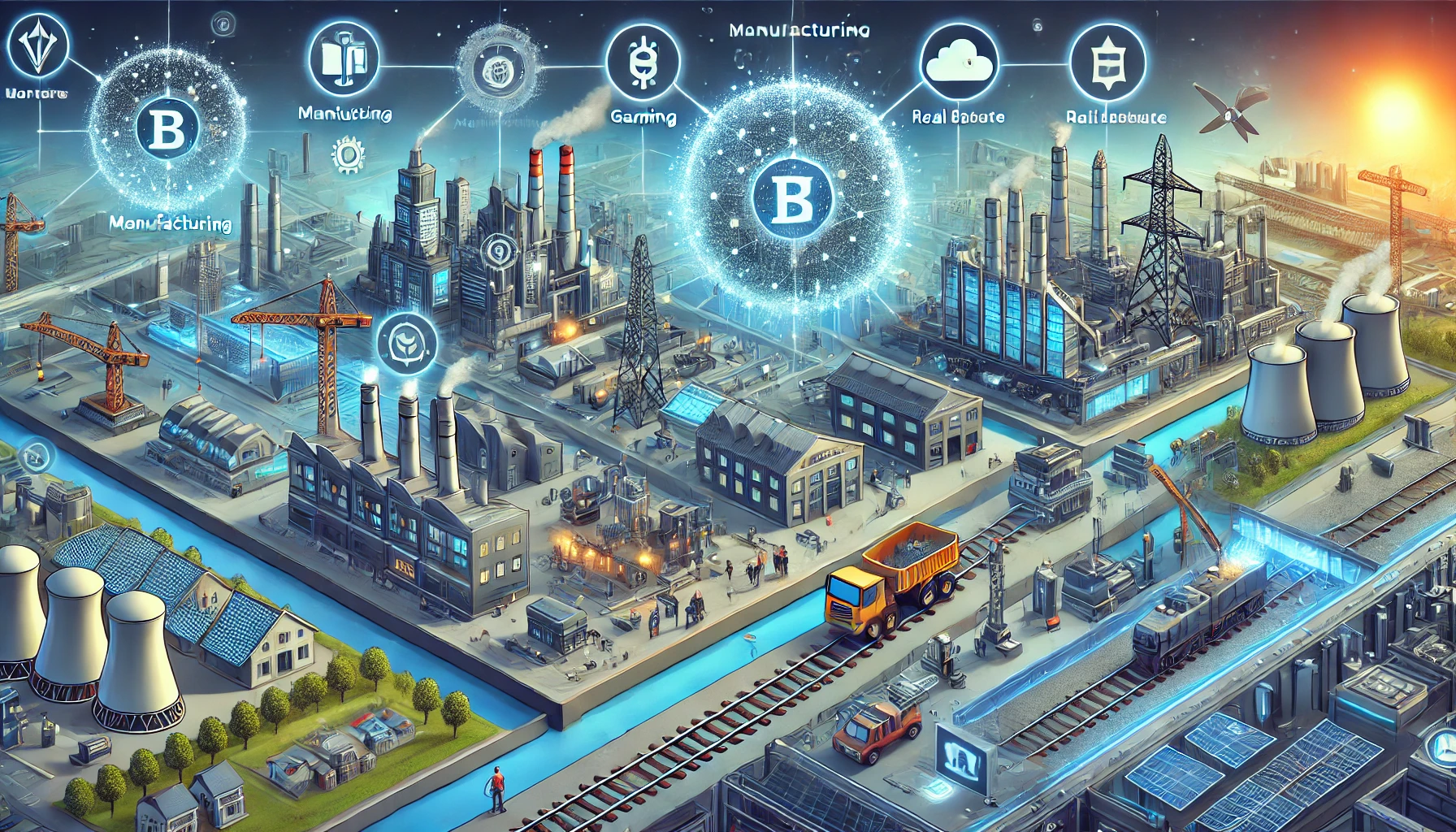Enhancing Industrial Efficiency with NFTs: A Dive into the Industrial Metaverse
Non-fungible tokens (NFTs) enhance digital twins in the industrial metaverse, improving efficiency, transparency, and innovation across sectors like manufacturing, gaming, real estate, and maintenance. This study highlights the transformative potential of dynamic and composable NFTs for various industrial applications.

Researchers from Khalifa University in Abu Dhabi and Charles Sturt University in Australia have explored the integration of digital twins within the industrial metaverse, a concept that has revolutionized various sectors such as manufacturing, automotive, oil and gas, and gaming by enhancing efficiency and innovation. Non-fungible tokens (NFTs) are emerging as a powerful tool to further enhance digital twins in this virtual space by providing opportunities for monetization, traceability, and intellectual property protection. The study delves into different types of NFTs, including dynamic and composable NFTs, and their potential in various industrial applications. By leveraging blockchain technology, NFTs offer superior transparency and asset management, reshaping the way industries operate.
Revolutionizing Industrial Efficiency with Digital Twins and NFTs
The industrial metaverse, a virtual reflection of the physical world, heavily relies on digital twins, which are replicas of real-world objects and interactions, enhanced by real-time data from sensors. These digital twins optimize operational costs and increase productivity by harnessing data from the physical world. Blockchain technology ensures the creation and monitoring of these digital twins in a decentralized manner, providing transparency throughout their lifecycle. NFTs serve as digital twins of physical counterparts on the blockchain, offering proof of ownership and authenticity. They are categorized based on their static or dynamic nature and their composability. Static NFTs have fixed metadata, while dynamic NFTs can change based on external conditions or predefined triggers. Composable NFTs, which can contain other NFTs, allow for complex asset structures to be managed and traded efficiently.
Manufacturing: Streamlined Processes through Dynamic NFTs
The paper presents several use cases in different industries where NFTs play a crucial role. In the manufacturing industry, NFTs represent components and sub-components, facilitating better assembly processes through accurate digital twins. For instance, creating digital twins for each physical counterpart and testing it in the metaverse benefits engineering teams by overcoming hurdles, engaging consumers in the building process, and reducing maintenance and replacement costs. Each digital twin is represented on the blockchain as an NFT, holding all the information of the owner’s details. The metadata of these NFTs can change as their status changes during assembly. This dynamic aspect ensures that any changes in ownership, resizing, mending, or alteration are accurately reflected, thus exploiting the usage of dynamic and composable NFTs in the manufacturing process.
Gaming Industry: Enhancing Player Experience with Composable NFTs
In the gaming industry, NFTs enable players to own and trade virtual goods, with avatars and digital artifacts represented as composable NFTs. Virtual gaming platforms attract youngsters by creating immersive and persistent worlds where users exchange digital currency for virtual goods. Digital twins of actual objects and people create a realistic virtual environment for players. NFTs act as proof of ownership and facilitate the tokenization and monetization of virtual goods. Additionally, character upgrades in games can be represented as dynamic NFTs, providing a unique and personalized gaming experience for players. Composable NFTs allow for avatars that encompass all purchased upgrades and attributes, enhancing the gaming experience.
Real Estate: Transforming Property Tours and Ownership Transparency
The real estate industry benefits significantly from the integration of NFTs and the metaverse. Virtual tours of properties allow interested clients to closely analyze details and experience the property without physically visiting the location. Lands and properties have digital replicas in the virtual world, mirroring their physical counterparts' exact details. NFTs serve as proof of ownership, with their metadata dynamically changing to reflect any alterations to the property. This dynamic nature ensures transparency and reliability over time. For instance, adding a floor to a house changes the metadata of the house NFT, capturing all modifications. Both composable and dynamic NFTs are used to represent real estate digital twins on the blockchain, transforming the industry’s future.
Maintenance: Proactive Industrial Solutions with Digital Twins and NFTs
Preventative and corrective industrial maintenance also sees improvements through the use of digital twins and NFTs. Urban structures such as bridges, railways, and tunnels require regular monitoring and maintenance to prevent hazardous conditions. Digital twin models equipped with IoT sensors provide accurate simulations of physical counterparts, improving maintenance processes. NFTs prove ownership of each component, with the entire structure represented by a composable NFT encompassing all individual NFTs. The metadata of these NFTs is dynamic, changing based on real-time sensory data reflecting maintenance status. The industrial metaverse enables better decision-making by virtually viewing digital twin models as 3D representations. This proactive inspection and maintenance capability is crucial for applying preventative measures and making informed decisions during corrective maintenance and component assembly.
The research methodology includes theoretical analysis, use case analysis, design and implementation of industrial use cases, and discussions on open challenges and future research directions. The study underscores the importance of NFTs in the industrial metaverse, presenting detailed implementations and smart contract code for two use cases involving dynamic and composable NFTs. Overall, the integration of NFTs in the industrial metaverse offers a promising avenue for enhancing transparency, ownership, and efficiency across various sectors. This study highlights the potential of these technologies to transform industries and pave the way for innovative solutions in the digital age.
- FIRST PUBLISHED IN:
- Devdiscourse










